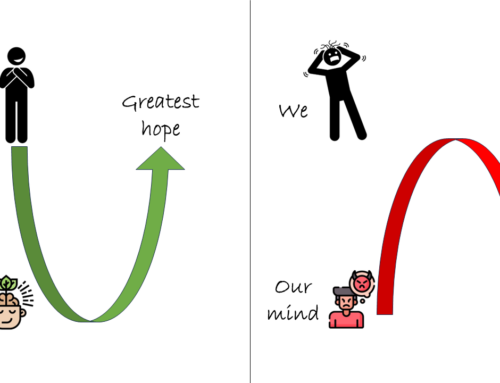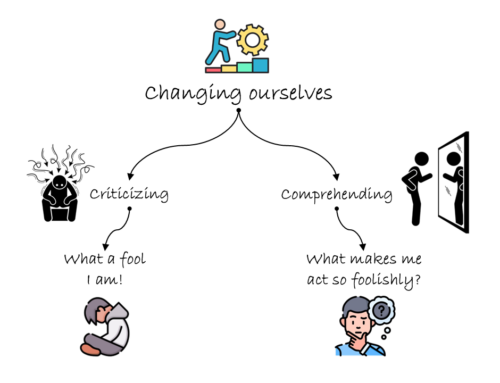One of the most intriguing Bhagavad-gita verses states: Elevate the self with the self, don’t degrade the self with the self; the self is the friend of the self and the self is the enemy of the self (06.05).
Herein, the self is used not just in the objective sense to refer to the essential self, the soul, but also in the instrumental sense to refer to something that acts on the self. Gita commentators explain that the instrumental self refers to the mind.
The mind is the subtle material interface between the spiritual soul and the physical body. Gita wisdom stresses that the mind is not the self – it is the channel through which the consciousness coming from the self perceives various objects. The soul is the root of consciousness and the mind is the route of consciousness.
However, because from the bodily perspective the mind is inside us and because it is non-physical, we tend to equate it with the self. We often think of ourselves as our feelings, not as the feelers of those feelings. If we conflate the instrumental self with the self, we stay stuck at the mental level with its flickering feelings or even become degraded to the sensual level because of the mind’s impulsive desires.
To rise to the spiritual level, we need to contemplate the insights of wisdom-literature such as the Gita and engage in yogic practices that elevate our consciousness from the material level to the spiritual level. For such elevating contemplation and action, our mind needs to be directed properly towards the soul.
Thus, this verse’s import is: By discriminating direction of our inner world, the instrumental self, the mind, can become the instrument to the self, the soul.
To know more about this verse, please click on the image
Explanation of article:
Podcast:
Download by “right-click and save”





Wonderful !
krishna bhakti is the best instrument to attain the SELF